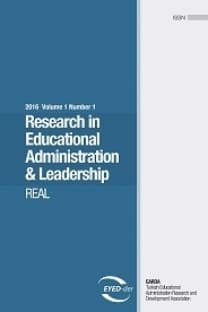Educational Leadership Research: Is There a Compelling Reason to Change?
This paper is a response to recent challenges to educational leadership research from Eacott. Using a personal narrative approach, and drawing, in the main, on research from the International Successful School Principalship Project, it is argued that current research questions are worthwhile, he methodologies used are trustworthy and appropriate, and that there is no compelling reason to abandon these.
___
- Bell, M. & Palmer, C. (2015). Shaping a strengths-based approach to relational leadership. In H. Askell-Williams (Ed.) Transforming the Future of Learning with Educational Research (pp. 201-220). Hershey, PA: IGI Global. Brooks, J.S., & Normore, A.H. (2018). Qualitative Research in Educational Leadership Studies: Issues in the Design and Conduct of Studies. In C.R. Lochmiller (Ed.) Complementary Research Methods for Educational Leadership and Policy Studies (pp. 19-32). New York, NY: Palgrave Macmillan. Bush, T. (2018). Relational leadership: New thinking or established ideas in ‘new clothes’. In S. Eacott, Beyond Leadership: A relational approach to organizational theory in education (pp. 177-188). Singapore: Springer. Crawford, M. (2018). Engaging with educationally leadership relationally. In S. Eacott, Beyond Leadership: A relational approach to organizational theory in education (pp. 243-250). Singapore: Springer. Day, C. & Gurr, D. (Eds) (2014). Leading Schools Successfully: Stories from the field. London: Routledge. Day, C. & Leithwood, K. (Eds) (2007). Successful School Leadership in Times of Change. Dordrecht, Netherlands: Springer. Doherty, J. (2008). Successful Principal Leadership of an Independent School in Victoria, Australia. Doctor of Education Thesis, the University of Melbourne. Drysdale, L. & Gurr, D. (2017). Leadership in Uncertain Times, International Studies in Educational Administration, 45(2), 131-159.
- Yayın Aralığı: Yılda 4 Sayı
- Yayıncı: Dokuz Eylül Üniversitesi
